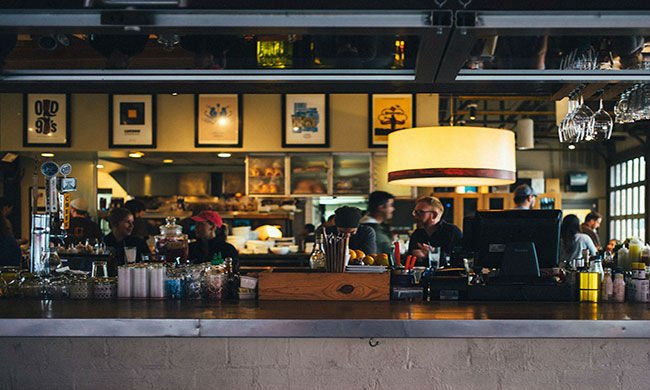
How to Reduce Restaurant Food Waste? 20 Proven Restaurant Management Tips
Restaurant food waste is a problem that nobody in the industry can afford to ignore. According to WRAP (The Waste and Resources Action Programme) 199,100 tonnes of food waste is produced each year by UK restaurants, with very little of this going to either composting or anaerobic digestion.
Not only does restaurant food waste have a significant impact on the environment, restaurant waste management also has considerable financial implications. In the hotel sector alone, food waste represents an expense of around ?318 million. Waste reduction in the catering industry, however, is a more complex matter than it is in domestic kitchens. We have 20 proven restaurant management tips to help you reduce restaurant food waste:

Understand The Issue Yourself
By reading around the issue and then investigating how much restaurant food waste you generate, you can start to put a cost to your waste and take steps towards waste reduction.
Educate Your Workforce
You are far more likely to get collaboration over restaurant food waste from your workforce if you make sure that they are included in conversations, training and the development of waste reduction systems.
Understand Where Waste Is Generated
Plate waste is just one example of where restaurant food waste is generated. During your investigations you should also take a look at kitchen-level errors, inedible elements (for example bones), vegetable peelings, meat and fish trimmings, spoiled food and food that has gone beyond date.
Decide Which Waste Is Unavoidable
In any restaurant kitchen some degree of food waste is inevitable. At the start of your waste management reduction research you should decide how unavoidable wasted can be reduced and, ultimately, disposed of.
Measure Your Restaurant Food Waste
Initially this should be done for a short, trial period, such as a week. Collect food waste in three categories – preparation, plate waste and spoiled food. The best way to record this is to work out each day the weight collected in each bin.

Work Out Your Restaurant Food Waste For A Year
This is made easy if you complete a daily food waste tracking sheet. Be prepared for a shock when you get the results.
Calculate Your Yearly Food Waste Cost
Food waste in the UK costs around ?4,000 per tonne so multiply this by your yearly food waste figure to find out how much you could save with an improved restaurant food waste management system.
Develop A Collaborative Action Plan
As with any action plan, include measurable and achievable targets. Your action plan should include points set out below.
Achieve Waste Reduction Through Spoilage Prevention
Spoilage control will play a key part in your restaurant waste management; update your systems in collaboration with your workforce.
Improve Stock Storage Systems
Audit and update stock storage systems checking temperature, labeling, dating and packaging procedures for any food items with a short shelf life.

Improve Food Delivery Processes
Ensure that stock, especially quickly degradable stock, is rotated on a ?first in, first out? basis whenever deliveries come in.
Enhance Waste Reduction Through Frozen And Dried Ingredients
Restaurant food waste reduction can be enhanced if, in collaboration with your chefs, you swap a proportion of fresh ingredients for frozen or dried ones. Remember that many ingredients can be frozen and thus given an increased life.
Understand Restaurant Demand
By keeping a careful check on restaurant reservation patterns, it is possible to avoid over-ordering or over-preparation.
Reduce Customer Choice
A menu that has fewer choices can still be a great one and there is a direct correlation between the number of dishes on your menu and waste production.
Give Subtle Menu Options
This may seem counterintuitive to the tip above but by giving customers choices over side dishes, for example chips or salad, waste through preference can be avoided. Sometimes setting side dishes as separate menu items can lead to food waste reduction because they offer an ?opt in? rather than an ?opt out? system.

Offer Portion Size Choices
Larger portions encourage plate waste so giving customers a choice of portion size is an excellent waste management tip.
Offer Customers ?Doggy Bags? Or Boxes
Customers are usually open to the idea of taking uneaten food home but are often not keen to ask. By making your ?doggy bag? policy explicit you can reduce your restaurant food waste.
Make Soup
Soups are only one way that you can effectively reduce restaurant food waste through using up unused ingredients. Animal bones, fish bones and vegetable peelings make excellent stock and bread that is past its best is useful for breadcrumbs.
Review Progress
Progress reviews of your restaurant waste management plan should be monthly and involve as many of the stakeholders as possible. You might even want to consider sharing your food waste reduction success with your customers as more and more of us are becoming aware of sustainability issues.
Compost Food Waste
Even with the best restaurant waste management plan and great waste reduction results; you will inevitably have some level of restaurant food waste. The most sustainable way to deal with this is to ensure it is either composted or sent for anaerobic digestion.
IMS has been involved in supporting caterers and managers in the food industry for more than 30 years. We understand the industry and are always pleased to help. If you need advice or are looking for a reliable meat wholesaler who can provide bespoke products, including fine halal meats, please contact us today.
